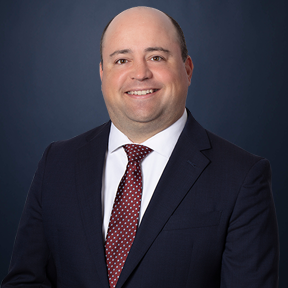Can Subcontractors Recover Their Attorney's Fees From General Contractors Under Indiana's Mechanic's Lien Act?
In a recent decision interpreting Indiana’s Mechanic’s Lien Act, the Indiana Supreme Court strongly suggested that, in addition to allowing subcontractors to recover their attorneys fees from the owner’s property, the Act provides a basis for subcontractors to recover their attorneys fees from the general contractor.
In Goodrich Quality Theaters, Inc. v. Fostcorp Heating & Cooling, Inc., et al, 39 N.E.3d 660 (Ind. Aug. 26, 2015), three (3) subcontractors recorded mechanic’s liens against the owner’s real estate. The general contractor (Roncelli) posted a surety bond with the Court to obtain the discharge of the subcontractors’ mechanic’s liens pursuant to Ind. Code § 32-28-3-11. After a bench trial, the trial court entered a judgment in favor of the subcontractors, and also awarded them their attorneys fees as against Roncelli on its surety bond.
That portion of the Court’s opinion is unremarkable, because Ind. Code 32-28-3-11(b) expressly states:
An undertaking filed under this section must provide that the person filing it will pay any judgment that may be recovered in the action to foreclose the lien, including costs and attorney’s fees allowed by the court, if the claim on which the judgment is founded is found by the court to have been a lien on the property at the time the action was filed.
What is remarkable is the Court’s statement, in dicta, that the subcontractors would have been entitled to recover their attorneys fees from Roncelli pursuant to Ind. Code § 32-28-3-14 “even if Roncelli had not posted a bond under § 32–28–3–11[.]” Goodrich, 39 N.E.3d at 665. Ind. Code § 32–28–3–14 provides that:
(a) Except as provided in subsection (b), in an action to enforce a lien under this chapter, a plaintiff or lienholder who recovers a judgment in any sum is entitled to recover reasonable attorney’s fees. The court shall enter the attorney’s fees as a part of the judgment.
(b) A plaintiff may not recover attorney’s fees as part of the judgment against a property owner in an action in which the contract consideration for the labor, material, or machinery has been paid by the property owner or party for whom the improvement has been constructed.
Heretofore, the consensus among Indiana construction attorneys was that Ind. Code § 32–28–3–14(a) allowed a subcontractor to recover its fees from the real estate only, and was not a basis upon which a subcontractor could recover its fees from a general contractor. In Goodrich, the Court interpreted Ind. Code § 32–28–3–14(a) to permit a subcontractor to recover its fees from the general contractor, for two (2) reasons. First, subsection 14(a) states that a lienholder is entitled to fees upon the recovery of a “judgment,” without regard to whether the judgment is against the property. Second, in a footnote, the Court stated that the subcontractors could recover their fees from Roncelli, “as [Roncelli] holds an interest in the real property.” Goodrich, 39 N.E.3d at 665, n. 4. (It is not clear from the Court’s opinion what interest Roncelli held in the real property.)
The Court’s conclusion is subject to criticism because it does not recognize that, as used in Ind. Code § 32–28–3–14(a), the word “judgment” is limited by the preceding phrase “in an action to enforce a lien[.]” A mechanic’s lien is not enforced against the general contractor; instead, it is enforced against the property that the subcontractor improved. See Premier Investments v. Suites of America, Inc., 644 N.E.2d 124, 130 (Ind. 1994) (“[t]he historical origin and purpose of mechanic’s lien statutes was to make a property owner an involuntary guarantor of payments for the reasonable value of improvements made to real estate by the physical labor or materials furnished by laborers or materialmen”). It follows that the subcontractors’ recovery of attorneys’ fees on a mechanic’s lien should be limited to the property owner, and specifically, to the interest in the owner’s property to which the lien attached.
Nevertheless, the Court’s dicta in Goodrich may have significant consequences for subcontractors and general contractors across Indiana. Many subcontractors do not have the bargaining power necessary to include the right to recover attorneys fees in their subcontracts. Thus, in the absence of a contract or statute providing them that right, under the “American Rule,” subcontractors cannot recover their attorneys fees from general contractors. Goodrich appears to grant subcontractors a statutory right to recover attorneys fees from general contractors, provided they timely exercise their statutory mechanic’s lien rights.
The dicta in Goodrich also leaves unanswered many important questions, among them: can a subcontractor recover attorneys fees from a general contractor in an action to enforce a mechanic’s lien, where the subcontractor’s lien is adjudged to be valid but lacks sufficient priority to be paid from a foreclosure sale?
Stay tuned.

Author Kevin N. Tharp
Kevin Tharp’s diverse business and litigation practice focuses on the construction industry. Kevin counsels owners, general contractors and subcontractors, and represents them in disputes involving claims for payment, delay, and design and construction defects, as well as mechanic’s liens.
Kevin also counsels clients in the selection and formation of business entities, mergers and acquisitions, business selection planning, and general contractual matters.
Kevin previously served on the Firm’s Management Committee (2011-2013).
© Riley Bennett Egloff LLP
Disclaimer: Article is made available for educational purposes only and is not intended as legal advice. If you have questions about any matters in this article, please contact the author directly.
Permissions: You are permitted to reproduce this material in any format, provided that you do not alter the content in any way and do not charge a fee beyond the cost of reproduction. Please include the following statement on any distributed copy: “By Kevin N. Tharp © Riley Bennett Egloff LLP – Indianapolis, Indiana. www.rbelaw.com”
Posted on Feb. 04, 2016, by Kevin N. Tharp
